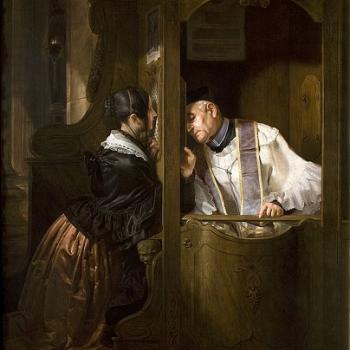
In recent months, I’ve come across a collection of articles and social media posts saying something along the lines of ‘Jesus asked us to follow him, not to worship him’. A bunch of people got quite excited about this, which told me that their experience of worship must be negative in some way – perhaps forced, or manipulated? Personally, my heart dropped, because I love worship. In terms of divine connection, it is a source of life for me.
I want to explore several questions about worship:
- What does worship achieve?
- What do we get out of it?
- What does God get out of it?
- Is it a requirement for believers?
I can only look at this from a personal point of view, and will openly share my experience and perspective, but am equally keen to hear from others. If you have something to say, I’d love to hear it, whether we agree or disagree.
My Story
I grew up in a conservative Evangelical church that actively warned against expecting to encounter God. Talk of the Holy Spirit was dry and pseudo-intellectual, and Christians who were into spiritual gifts were labelled ‘dodgy’ or ‘of the Devil’.
In my mid-teens, I attended Spring Harvest – an annual, UK-based event hosted in holiday camps around the country – where I was exposed to a completely different and much more vital expression of Christianity. The excitement, the energy, the positivity!
Your name is like honey on my lips
Your spirit like water to my soul
Your word is a lamp unto my feet
Jesus, Jesus.
As we sang, something unexpected began to happen – in contrast to my previous experiences of worship, including numerous occasions when this song had been sung, I actually meant what I was singing. I could sense the loveliness of Jesus in every word, and my heart responded with joy. In those moments, God was more real to me than my surroundings. His presence was tangible and astonishingly loving. I gave myself to the experience entirely, basking in the wonderful love of God, and though we sang that song for half-an-hour, I was disappointed when the band brought it to a close. I felt ‘close to God’ – something I’d only understood as rhetoric, previously – and that meant the world to me. In that moment, I knew in my bones that God is good, and loves us completely.
For me, this is one of the primary purposes of worship – the tangible presence of God is the crucible of theology. In his company, misguided ideas about the divine nature are burned up and our hearts know his goodness. There’s only one way to truly know God, and that is to spend time in his incredible presence. As the psalmist wrote, ‘Better is one day in your courts than a thousand elsewhere’.
What does God get out of worship?
This is the crucial question, in terms of recent discussions I’ve been involved in. The argument goes that a God who seeks to be worshipped must be narcissistic and incomplete. Why would the perfect being need anything from us?
For me, the answer is simple; he doesn’t. Worship isn’t something God demands. He does not sit around, sunning himself in the glow of our adoration. In fact, all my experiences of sincere, connected worship have demonstrated the opposite – rather than focusing on what we can give to him, God actively gives to us. In the presence of God, I know love, peace, and joy. I receive guidance, and yes, I rightly pour out my adoration, but not because God demands it. It is simply the organic response my heart makes, that in and of itself is an act of vulnerability and surrender, bringing down my walls and helping me be fully in the moment.
What’s the theology behind worship?
Jesus spoke of the essence of true worship, in John 4, 23-24:
‘But the hour is coming, and now is, when the true worshipers will worship the Father in spirit and truth; for the Father is seeking such to worship Him. God is Spirit, and those who worship Him must worship in spirit and truth.’
We don’t connect with God through the carnal mind or a shelf full of study Bibles. We connect with God, who is Spirit, because we too are spirits. 1 Cor 2, 4:
‘For what man knows the things of a man except the spirit of the man which is in him? Even so no one knows the things of God except the Spirit of God.’
Humans are spirit beings who carry wisdom to know all that God has given us in Christ. 1 Cor 2, 5:
‘Now we have received, not the spirit of the world, but the Spirit who is from God, that we might know the things that have been freely given to us by God.’
Worship is a fantastic place to access the love and wisdom of God because we are connecting straight to God through our spirits. When we are lost in worship, we are in our most elevated, supernatural state, and in those moments of clear sight, where human and divine eyes meet, we can know the truth. These are the worshippers the Father seeks – those who worship in spirit and in truth. Not because of some itch he needs us to scratch, but because the core dynamic of worship is connection with the divine, where the love of God touches and transforms us.
Whether we’re Progressive or Evangelical, the bottom line is that a true life of faith is one that is saturated by the presence of God.
The unity forged by corporate worship
I can only speak from personal experience, but times of corporate worship are among my deepest delights. I love it when the Spirit of God moves a congregation in the same direction, inspiring ideas that uplift us in a way that is shared. During such times of devotion, the Lord actively brings his people together through the ministry of the Holy Spirit, leading us collectively for the good of all. 1 Peter 2: 4-5,
You also, as living stones, are being built up a spiritual house, a holy priesthood, to offer up spiritual sacrifices acceptable to God through Jesus Christ.
In times of prayer, devotion, and worship, we are being built together into a spiritual house! The Spirit of God, if not quenched, resisted, or grieved, actively builds the bonds between us. In this living community, where each of us has a part to play, the leading of the Spirit is essential. Without that, our services are just carnality, playing at church instead of being the Church.
The unity forged by spending time together in the presence of God ushers in a host of other blessings. Psalm 133:
‘How good and pleasant it is
when God’s people live together in unity…
For there the Lord bestows his blessing,
even life for evermore.’
Is Worship a requirement for believers?
The short answer is no, worship is not a requirement for believers. God does not need or demand our worship. He is neither needy nor narcissistic and has no itch we are obliged to scratch. Neither is God picky about the particular form of worship we offer – he isn’t a pedant, turning his nose up at one format or another.
As previously stated, however, worship is as natural as breath for the loved creation, responding to the loving creator. Mystical experience of the divine leads us to gratitude and adoration, because Jesus is beautiful. Mystical experience helps us see him with clear eyes, and in those moments, it would be entirely inorganic to hold back our love. Similarly, I deeply love my wife, and am often struck by how wonderful she is. In those moments, it is natural as breath to tell her I love her. I want her to feel it, to know it, and to be touched by it. Romance is a divine gift, reflecting the spiritual intimacy we can all have with God. Worship is a spiritual rendezvous with our divine lover, and I can only pity the person who has some kind of faith in Jesus but does not know him in this way. They are, to put it simply, massively missing out!
8/7/2024 5:02:59 AM





